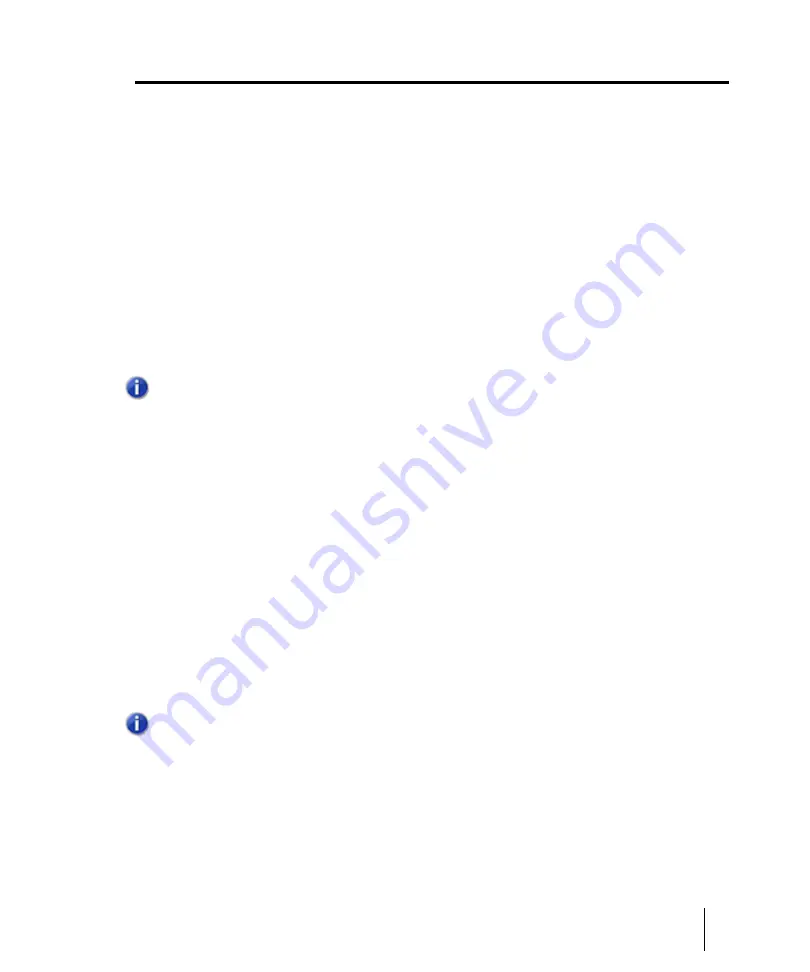
293
Recording audio
Recording
Recording audio
Before you record audio, you should check your input levels. If the levels are too low, you may end
up with too much hiss and background noise in your recording. If the levels are too high, your
recording will be inaccurate or distorted. To check your audio levels, use the audio meters in the
either the Track view, Track Inspector or Console view. To adjust the input levels, you must use your
sound card’s software mixer program (or the Windows 7 mixer) or an external hardware mixer for
certain sound cards.
The audio meters indicate the volume at which the audio will be recorded, in units called decibels
(dB). The meter values range from -INF (silent) to 0dB (maximum volume). You can change many
options in the way SONAR’s meters display data: see
on page 899. To maximize the
dynamic range of your recording, you want to set the levels as high as possible without clipping.
When the audio level exceeds 0dB, some of the audio information is lost. This is known as
overload
. Many sound cards use clipping to deal with an overloaded signal, but clipping can distort
the audio signal. As a result, you should avoid letting the meter level exceed 0dB.
To check the Input levels
1.
In the Track view, choose the inputs for the tracks you want to record, and arm the tracks for
recording. The default meter range is from 0 dB to -60 dB. To change the range, right-click on the
meter and choose a new range from the menu.
2.
Perform at the loudest level at which you plan to record.
3.
Watch the meters respond. Increase the input volume as high as possible without ever letting the
meters move all the way to 0dB, even for an instant, or letting the
Clipping
indicator turn red. If
either of these things happen, reduce the input volume just enough to avoid them during the
entire performance. Note that some kinds of audio, such as percussive or plucked musical
instruments, can produce very short, high-level “transients” when struck or plucked aggressively,
which can lead to clipping if the input volume is set too high. Consider the possibility of these
transients when examining the meters and setting your record level.
Once you have set your sampling rate and input levels, you are ready to start recording. If the
meters do not move, check your sound card software’s mixer program and make sure that you have
the proper input enabled for recording.
Note:
Because SONAR is a digital recorder, a level of 0dB indicates digital zero. Digital
distortion will occur at 0dB. You will not get analog compression or warmth from pushing the
input levels. If you are transferring data from a DAT or another device, you may want to calibrate
the input levels of your sound card with the output levels of other devices in your studio. This will
ensure that 0dB on one unit will appear as 0dB in SONAR.
Note:
If the Clipping indicator is illuminated, click on it to reset.
Summary of Contents for sonar x3
Page 1: ...SONAR X3 Reference Guide...
Page 4: ...4 Getting started...
Page 112: ...112 Tutorial 1 Creating playing and saving projects Saving project files...
Page 124: ...124 Tutorial 3 Recording vocals and musical instruments...
Page 132: ...132 Tutorial 4 Playing and recording software instruments...
Page 142: ...142 Tutorial 5 Working with music notation...
Page 150: ...150 Tutorial 6 Editing your music...
Page 160: ...160 Tutorial 7 Mixing and adding effects...
Page 170: ...170 Tutorial 8 Working with video Exporting your video...
Page 570: ...570 Control Bar overview...
Page 696: ...696 AudioSnap Producer and Studio only Algorithms and rendering...
Page 720: ...720 Working with loops and Groove Clips Importing Project5 patterns...
Page 820: ...820 Drum maps and the Drum Grid pane The Drum Grid pane...
Page 848: ...848 Editing audio Audio effects audio plug ins...
Page 878: ...878 Software instruments Stand alone synths...
Page 1042: ...1042 ProChannel Producer and Studio only...
Page 1088: ...1088 Sharing your songs on SoundCloud Troubleshooting...
Page 1140: ...1140 Automation Recording automation data from an external controller...
Page 1178: ...1178 Multi touch...
Page 1228: ...1228 Notation and lyrics Working with lyrics...
Page 1282: ...1282 Synchronizing your gear MIDI Machine Control MMC...
Page 1358: ...1358 External devices Working with StudioWare...
Page 1362: ...1362 Using CAL Sample CAL files...
Page 1386: ...1386 Troubleshooting Known issues...
Page 1394: ...1394 Hardware setup Set up to record digital audio...
Page 1400: ...1400 MIDI files...
Page 1422: ...1422 Initialization files Initialization file format...
Page 1463: ...1463 Misc enhancements New features in SONAR X3...
Page 1470: ...1470 Comparison...
Page 1518: ...1518 Included plug ins Instruments...
Page 1532: ...1532 Cyclone Using Cyclone...
Page 1694: ...1694 Beginner s guide to Cakewalk software Audio hardware sound cards and drivers...
Page 1854: ...1854 Preferences dialog Customization Nudge Figure 518 The Nudge section...
Page 1856: ...1856 Preferences dialog Customization Snap to Grid Figure 519 The Snap to Grid section...
Page 1920: ...1920 Snap Scale Settings dialog...
Page 2042: ...2042 View reference Surround panner...






























